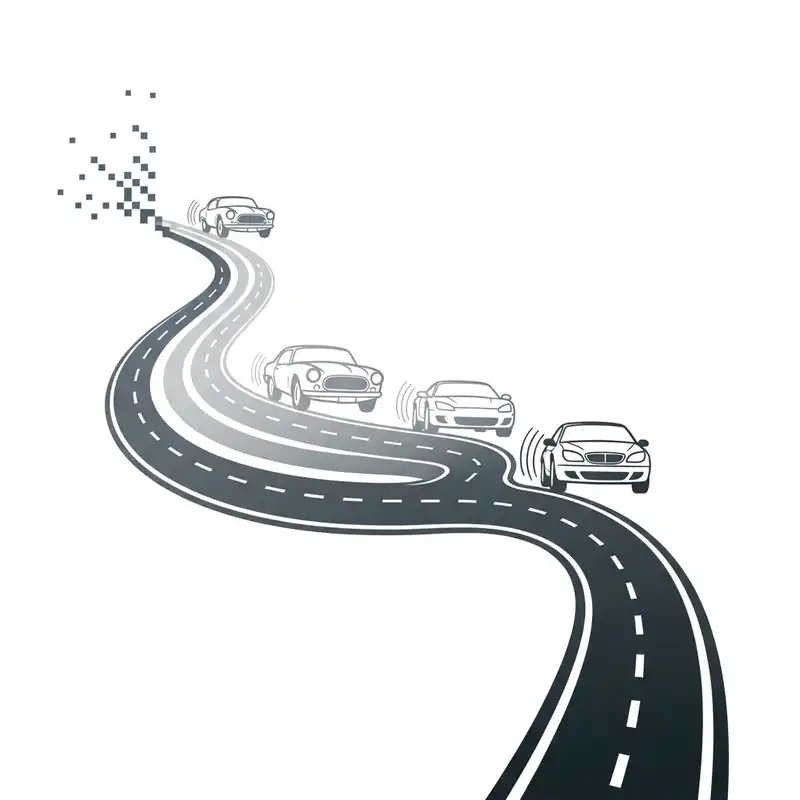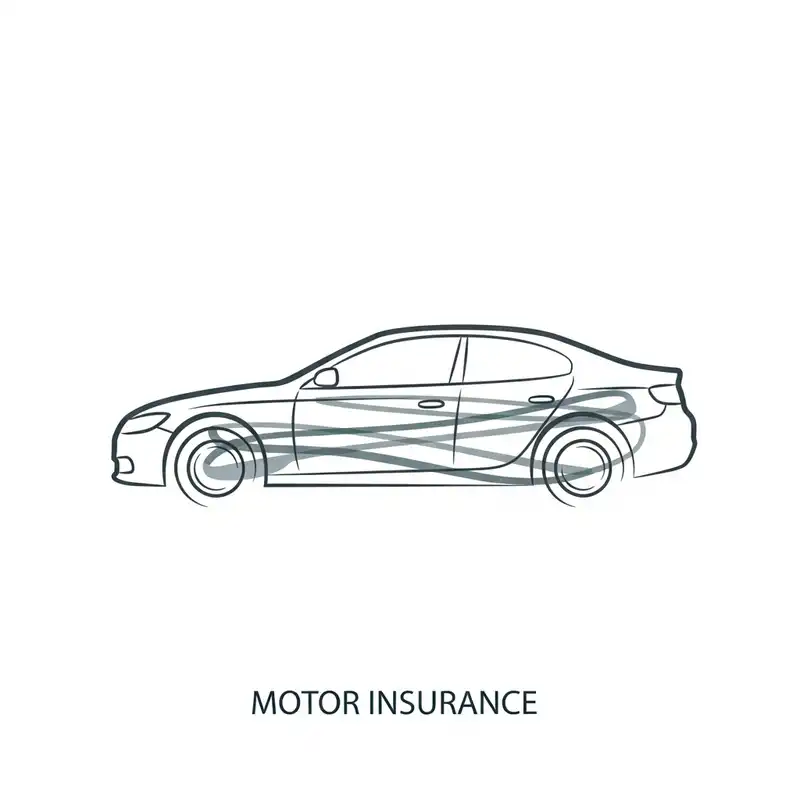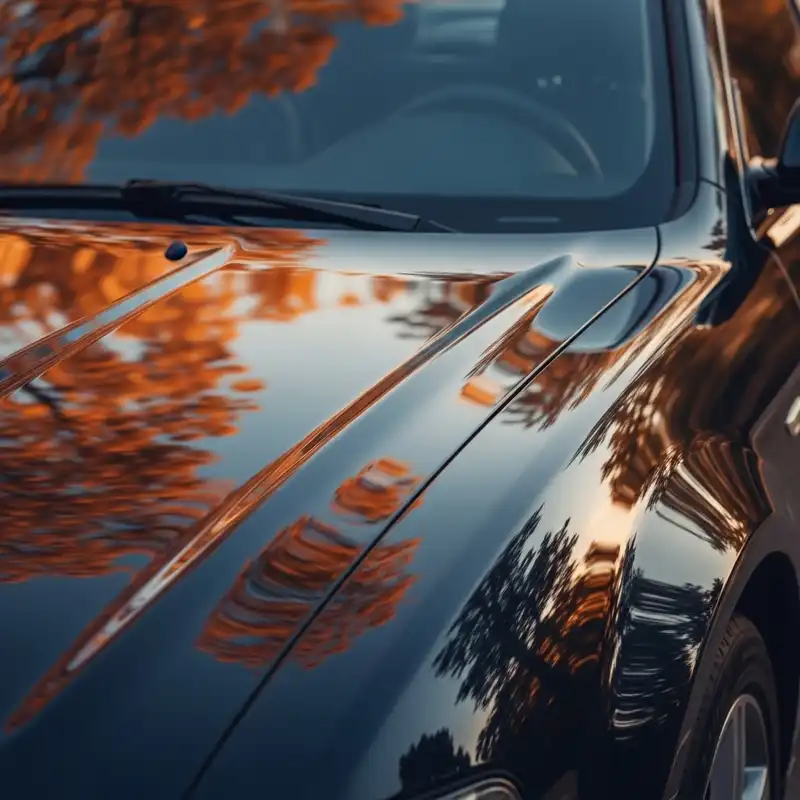TL;DR
As FCA-authorised experts who have helped arrange over 900,000 policies, the team at WeCovr is dedicated to demystifying the UK motor insurance market. Today, we're tackling a critical and costly issue affecting millions: the hidden insurance impact of Advanced Driver-Assistance Systems (ADAS). UK 2025 Shock New Data Reveals Over 1 in 3 New Car Owners Face Soaring Premiums Due to Complex ADAS Repairs, Fueling a Staggering £3,500+ Lifetime Burden in Increased Insurance Costs – Is Your Motor Insurance Policy Geared for the Future of Smart Driving The vehicle parked on your driveway is more advanced than ever before.
Key takeaways
- Cameras in Windscreens: Many ADAS systems rely on a forward-facing camera mounted behind your rearview mirror. A simple windscreen replacement now requires a highly precise recalibration of this camera. According to Thatcham Research, the UK's automotive risk intelligence experts, this process must be done in a controlled workshop environment to ensure the system functions correctly.
- Radar in Bumpers and Grilles: Adaptive Cruise Control and collision warning systems use radar units hidden behind the bumper or car badge. A minor parking knock that once required a simple paint touch-up could now necessitate a repair and recalibration bill costing hundreds, if not thousands, of pounds.
- Sensors Everywhere: Ultrasonic parking sensors, surround-view cameras in wing mirrors, and lane departure sensors are located all around the car's bodywork. Any repair in these areas demands specialist attention and diagnostic equipment.
- Increased Annual Premium (illustrative): The added risk of expensive ADAS repairs can add anywhere from £50 to £250+ to the annual premium for a modern car compared to an older, non-ADAS equivalent, depending on the model and insurer. Let's take a conservative average of £75 per year.
- Impact of a Claim (illustrative): A single ADAS-related claim for a "minor" incident could cost £1,500. Not only do you pay your excess (e.g., £400), but you also lose your No-Claims Bonus. This loss could increase your premiums by 30-60% for the next three to five years. This can easily add an extra £800-£1,200 in premiums over that period.
As FCA-authorised experts who have helped arrange over 900,000 policies, the team at WeCovr is dedicated to demystifying the UK motor insurance market. Today, we're tackling a critical and costly issue affecting millions: the hidden insurance impact of Advanced Driver-Assistance Systems (ADAS).
UK 2025 Shock New Data Reveals Over 1 in 3 New Car Owners Face Soaring Premiums Due to Complex ADAS Repairs, Fueling a Staggering £3,500+ Lifetime Burden in Increased Insurance Costs – Is Your Motor Insurance Policy Geared for the Future of Smart Driving
The vehicle parked on your driveway is more advanced than ever before. Packed with intelligent cameras, radar, and sensors, it’s designed to be the safest car you’ve ever owned. But this cutting-edge safety technology, known as ADAS (Advanced Driver-Assistance Systems), comes with a hidden sting in its tail: a significant and growing impact on your motor insurance premiums.
New industry analysis for 2025 reveals a startling trend. Over a third of UK drivers with new or nearly new cars are facing unexpectedly high insurance renewal costs, directly linked to the complexity and expense of repairing their vehicle's ADAS features. This isn't a minor increase; it’s contributing to a potential lifetime cost burden of over £3,500 in additional premiums for the average driver. The very systems designed to prevent accidents are, paradoxically, making the financial consequences of even minor incidents much, much worse.
The ADAS Paradox: Why Safer Cars Are Costing More to Insure
It seems counter-intuitive. Features like Autonomous Emergency Braking (AEB), Lane Keep Assist, and Blind Spot Monitoring are proven to reduce collisions. The Association of British Insurers (ABI) has long supported their fitment. So, why aren't insurers rewarding drivers with lower premiums across the board?
The answer lies in the three R's: Repair, Recalibration, and Replacement.
When an older, non-ADAS car suffered a minor bump or a chipped windscreen, the fix was often simple and affordable. Today, it’s a different story. These sophisticated safety systems are intricately woven into the fabric of your vehicle, turning minor incidents into major expenses.
- Cameras in Windscreens: Many ADAS systems rely on a forward-facing camera mounted behind your rearview mirror. A simple windscreen replacement now requires a highly precise recalibration of this camera. According to Thatcham Research, the UK's automotive risk intelligence experts, this process must be done in a controlled workshop environment to ensure the system functions correctly.
- Radar in Bumpers and Grilles: Adaptive Cruise Control and collision warning systems use radar units hidden behind the bumper or car badge. A minor parking knock that once required a simple paint touch-up could now necessitate a repair and recalibration bill costing hundreds, if not thousands, of pounds.
- Sensors Everywhere: Ultrasonic parking sensors, surround-view cameras in wing mirrors, and lane departure sensors are located all around the car's bodywork. Any repair in these areas demands specialist attention and diagnostic equipment.
The result? ABI data consistently shows that repair costs have been rising well above inflation, driven significantly by this technological complexity. Insurers are factoring this increased claims cost into their pricing models, leading to higher premiums for owners of modern vehicles.
A Tale of Two Repairs: The Staggering Cost Difference
Let's look at a real-world example to see the financial impact. This illustrates why your insurer is concerned about a seemingly minor claim.
| Repair Scenario | Non-ADAS Vehicle (e.g., 2014 Ford Focus) | ADAS-Equipped Vehicle (e.g., 2024 Ford Focus) |
|---|---|---|
| Windscreen Replacement | £250 - £400 (Glass and labour) | £800 - £1,500+ (Glass, labour, and mandatory camera recalibration) |
| Minor Front Bumper Scuff | £150 - £300 (Respray and labour) | £600 - £1,200+ (Respray, labour, and radar sensor recalibration) |
| Wing Mirror Replacement | £100 - £200 (Standard heated mirror unit) | £400 - £700+ (Unit includes blind spot sensor and/or camera) |
Source: Figures based on 2025 UK garage and insurer data analysis from sources including the ABI and Thatcham Research.
As the table clearly shows, a claim that might have cost an insurer less than £300 a decade ago can now easily exceed £1,000. This increased claims cost is the primary driver behind the premium hikes for owners of modern vehicles.
The Financial Breakdown: How the £3,500 Lifetime Burden Adds Up
That headline figure of a £3,500+ lifetime burden might seem high, but the maths is worryingly simple. (illustrative estimate)
- Increased Annual Premium (illustrative): The added risk of expensive ADAS repairs can add anywhere from £50 to £250+ to the annual premium for a modern car compared to an older, non-ADAS equivalent, depending on the model and insurer. Let's take a conservative average of £75 per year.
- Impact of a Claim (illustrative): A single ADAS-related claim for a "minor" incident could cost £1,500. Not only do you pay your excess (e.g., £400), but you also lose your No-Claims Bonus. This loss could increase your premiums by 30-60% for the next three to five years. This can easily add an extra £800-£1,200 in premiums over that period.
- Averaging the Cost: If we average this out over a 40-year driving lifetime, the calculation looks like this:
- Illustrative estimate: Base ADAS Premium Increase: £75 x 40 years = £3,000
- Illustrative estimate: Cost of one major claim's premium impact over the lifetime = £800
- Total Estimated Lifetime Burden = £3,800
This demonstrates how the combination of higher base premiums and the severe financial penalty of even a single claim quickly accumulates into a substantial lifetime cost.
Your Legal Motor Insurance Obligations in the UK: A Crucial Refresher
Before delving deeper into managing ADAS costs, it's vital to remember the legal foundations of motor insurance in the UK. Under the Road Traffic Act 1988, it is a criminal offence to drive, or even just keep, a vehicle on a public road without at least a basic level of insurance.
The legal minimum is Third-Party Only cover. However, there are three main types of policy available for private cars, vans and motorcycles:
- Third-Party Only (TPO): This is the most basic cover. It pays out for any injury or damage you cause to other people, their property, or their vehicles in an accident. Crucially, it does not cover any damage to your own car or your own injuries.
- Third-Party, Fire and Theft (TPFT): This includes everything in a TPO policy but adds cover for your vehicle if it is stolen or damaged by fire.
- Comprehensive: This is the highest level of cover. It includes all the protection of a TPFT policy but also covers damage to your own vehicle, regardless of who was at fault in an accident. Given the high cost of ADAS repairs, comprehensive cover is essential for any modern vehicle. It often includes other benefits like windscreen cover and personal accident cover as standard.
An Important Note: Don't assume Third-Party cover is the cheapest. Insurer data often shows that drivers seeking the minimum level of cover can be a higher risk, so Comprehensive policies are frequently the same price or even cheaper. It is always worth comparing quotes for all three levels.
For businesses, fleet insurance and business car insurance carry the same legal minimums but also involve a 'duty of care' to employees under Health and Safety law. Ensuring company vehicles are properly insured, especially with technology as complex as ADAS, is a key part of an organisation's legal and financial responsibilities.
Demystifying Your Policy: How ADAS Impacts Key Insurance Terms
Understanding your insurance documents is more important than ever. Here’s how these new repair complexities affect the core components of your motor policy.
No-Claims Bonus (NCB) or No-Claims Discount (NCD)
Your NCB is a valuable discount earned for each year you go without making a claim, with five or more years often yielding discounts of 60% or more. A small bumper scuff on an old car might have been something you'd pay for yourself to protect your NCB.
However, with a potential £1,200 bill for an ADAS recalibration, you're far more likely to have to make a claim. This can slash your NCB and lead to higher premiums for the next 3-5 years. Protecting your No-Claims Bonus as an optional extra is now a very wise consideration, as it allows for one or two claims within a period without affecting your discount.
Policy Excess
The excess is the amount you agree to pay towards any claim. It's made up of two parts:
- Compulsory Excess: A fixed amount set by the insurer.
- Voluntary Excess: An amount you add on top. A higher voluntary excess can lower your premium.
With ADAS, you must be careful. Setting a high voluntary excess of, say, £500 to save £50 on your annual premium might seem smart. But when faced with a £1,500 bill for a recalibration after a minor incident, you will have to find that £500 yourself. You need to balance the potential premium saving against the real-world cost of a potential claim.
Optional Extras: Are They Still 'Optional'?
- Courtesy Car: Standard courtesy cars are often small, basic models. If your ADAS-equipped family SUV is in the garage for a week awaiting specialist calibration, will a 1.0-litre hatchback be a suitable replacement? Look for policies that offer an enhanced or like-for-like courtesy car option.
- Windscreen Cover: This used to be a simple add-on. Now, you must check the details. Does it explicitly cover recalibration costs? Is there a separate, lower excess for it? Some policies may cover the glass replacement but leave you to foot the bill for the essential recalibration, which could be hundreds of pounds.
- Legal Expenses Cover: This provides funds (often up to £100,000) to pursue uninsured losses (like your excess, loss of earnings, or personal injury compensation) from a third party. With higher repair costs and more potential for disputes over liability, it's an increasingly valuable safety net.
Finding an ADAS-Ready Insurance Policy: What Every Driver Must Ask
Not all motor insurance UK providers are created equal when it comes to understanding modern vehicle technology. When comparing policies, you need to be an informed consumer. An expert broker can be invaluable here.
Here’s a checklist for finding the best car insurance provider for your ADAS-equipped vehicle:
-
Is the Approved Repairer Network ADAS-Certified?
- Ask: "Is your repairer network trained and equipped to the Thatcham Research IMI AOM 230 standard for ADAS calibration?" Using a non-approved garage could invalidate your car's warranty and, more importantly, compromise its safety systems.
-
Do You Guarantee Original Equipment (OEM) Parts?
- Ask: "Does my policy guarantee the use of Original Equipment Manufacturer (OEM) parts for safety-critical repairs like sensors and cameras?" Aftermarket parts may not integrate correctly with ADAS, leading to system failure.
-
Is Windscreen Recalibration Explicitly Covered?
- Ask: "Can you confirm in writing that the cost of ADAS recalibration following a windscreen replacement is fully covered under my windscreen excess, not my main policy excess?" If the wording is ambiguous, be wary.
-
How Do You Handle 'Forced' Recalibration?
- Ask: "If a non-accident repair, such as replacing a tyre, triggers a recommendation for ADAS recalibration, is there any cover for this?" This is a grey area, and knowing your insurer's stance is crucial.
Navigating this new landscape can be daunting. This is where an independent, FCA-authorised broker like WeCovr provides immense value. We work with a wide panel of UK insurers, including specialists who understand the nuances of ADAS. We can help you compare policies to find one that offers the right protection at a competitive price, at no extra cost to you. Our high customer satisfaction ratings are built on this expertise.
Smart Strategies to Lower Your Motor Policy Costs in the ADAS Era
While the trend is towards higher costs, you are not powerless. Here are practical steps you can take to manage your motor insurance premium.
| Strategy | How It Works | Key Consideration for ADAS Vehicles |
|---|---|---|
| Compare Quotes Thoroughly | Use a comprehensive comparison service or an independent broker like WeCovr to access a wide range of insurers, including those specialising in modern vehicles. | Don't just look at the price. Compare cover levels, excess, and ADAS-specific clauses like recalibration cover. The cheapest policy is rarely the best value. |
| Consider Telematics ('Black Box') | A policy that monitors your driving habits (braking, acceleration, cornering, speed) can offer significant discounts by proving you are a safe driver. | Your proven good driving behaviour can directly offset the background risk increase that insurers apply due to high ADAS repair costs. |
| Increase Voluntary Excess Wisely | Agreeing to pay more towards a claim can reduce your annual premium. | Be realistic about what you can afford. With ADAS, even a small claim can be expensive, so ensure your excess is a manageable amount. |
| Pay Annually | Paying for your insurance in one lump sum avoids interest charges, which can add up to 20% or more to the total cost if you pay monthly. | If you can't pay annually, look for providers offering 0% finance deals on the premium. |
| Improve Vehicle Security | While ADAS is about collision safety, traditional security (Thatcham-approved trackers, alarms, immobilisers) can still earn you a discount against theft. | This is especially important for high-value, keyless-entry cars which are often targets for theft. |
| Bundle Your Policies | Insurers value loyalty. At WeCovr, we can often provide discounts on other products like home or life insurance when you take out a motor policy, reducing your overall expenditure. | Always check if a bundled deal is cheaper than buying policies separately. |
The Future is Now: EVs, Fleet Management, and Mandatory Safety Tech
The ADAS issue is not going away. In fact, it's set to become the standard for every driver in the UK.
- Electric Vehicles (EVs): EVs are at the forefront of automotive tech and are almost universally equipped with comprehensive ADAS suites. The combination of specialist high-voltage battery technicians and ADAS calibration experts makes EV repairs even more complex and costly, a factor heavily influencing their insurance grouping.
- Mandatory ADAS (GSR2): The EU's General Safety Regulation 2 (GSR2), which the UK has largely adopted, made a suite of ADAS features mandatory on all brand-new types of cars from July 2022, and on all new cars sold from July 2024. This includes Intelligent Speed Assistance, Driver Drowsiness warnings, and Emergency Lane Keeping Systems. This means that very soon, every new car sold will have these complex systems as standard.
- Fleet Insurance Challenges: For businesses running fleets of cars or vans, the challenge is magnified. ADAS repair complexity doesn't just mean higher costs; it means more Vehicle Off Road (VOR) time. A delivery van off the road for a week awaiting a specialist part and recalibration has a direct impact on revenue. Fleet managers need robust fleet insurance policies and access to an efficient, qualified repair network that can minimise downtime.
Do I need to declare my car's factory-fitted ADAS to my insurer?
Will a windscreen chip claim that requires ADAS recalibration affect my no-claims bonus?
Can I use my local garage for an ADAS-related repair to save money?
How can WeCovr help me find the right motor insurance for my modern car?
The world of motoring is changing faster than ever. While ADAS technology is a huge leap forward for road safety, it has introduced a new layer of complexity and cost to motor insurance. Being an informed car owner, van driver, or fleet manager is the best defence against unexpected bills and inadequate cover. By understanding the issues, asking the right questions, and choosing your policy with care, you can ensure your vehicle cover is truly geared for the future of smart driving.
Ready to see if your motor insurance is fit for the future? Get a fast, free, and impartial quote from the experts at WeCovr today and compare policies designed for the real world of modern driving.
Sources
- Department for Transport (DfT): Road safety and transport statistics.
- DVLA / DVSA: UK vehicle and driving regulatory guidance.
- Association of British Insurers (ABI): Motor insurance market and claims publications.
- Financial Conduct Authority (FCA): Insurance conduct and consumer information guidance.






